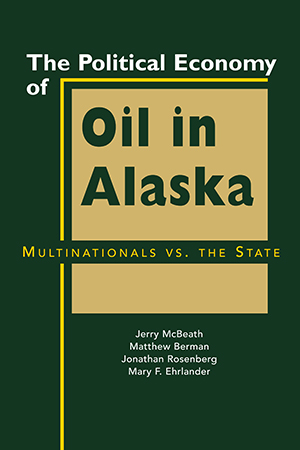
- 2008/277 pages
The Political Economy of Oil in Alaska:
Multinationals vs. the State
Does Alaska's reliance on oil and gas mean that it inevitably will be controlled by corporate energy interests? Or can the state use its vast resource holdings to manage a more symmetrical partnership? The Political Economy of Oil in Alaska investigates the complex relationship Alaska has with its most precious commodity.
Offering a new perspective on the challenges of oil-dependent development, the authors explore the dynamic balance between the power of a subnational government—as the owner of resources, possessor of fiscal authority, and regulator of safety and environmental conditions—and the ability of Big Oil to develop energy resources, affect the state economy, and influence state policies. The result is a comprehensive study of an often contentious alliance.







